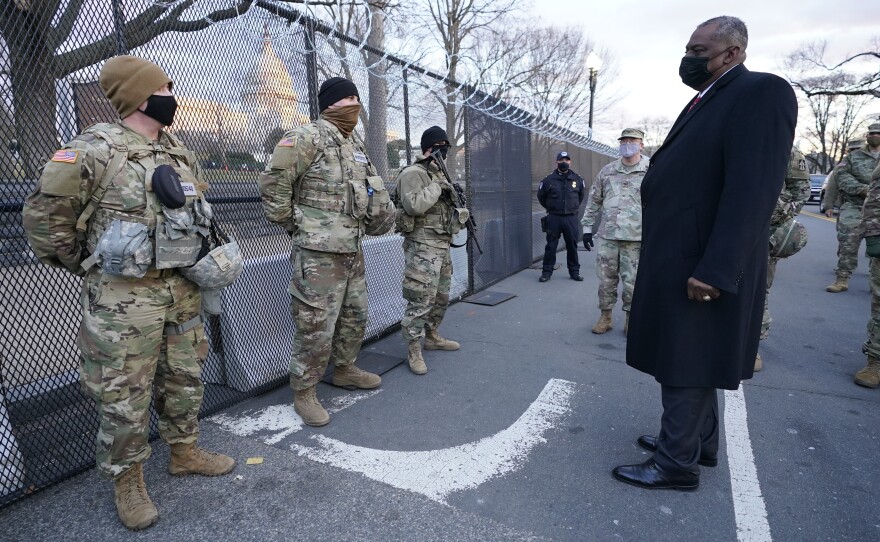Dozens of U.S. service members were investigated during the 2023 fiscal year for advocating, engaging in or supporting terrorism in the U.S. or for overthrowing the federal government, a new Pentagon inspector general report says.
Across the military, 275 "prohibited activity" allegations were investigated from October 2022 through September, the Pentagon said in a news release.
The report is one of several released Nov. 30 that examined military programs on diversity and inclusion as well as how the services are responding to extremism among their members. Congress began mandating the reports in the wake of the Jan. 6, 2021 U.S. Capitol insurrection and findings that many involved were military veterans.
The reports also tallied the number of service members investigated for criminal gang activity — a prohibited activity but one that isn't classified as "extremism."
In total, 183 service members were alleged to have participated in prohibited extremist activity.
The Pentagon defines such activity as advocating or engaging in violence to deprive people of their rights, to achieve political or discriminatory goals and terrorism. It further defines extremist activity as advocating for the overthrow of the U.S. government or the widespread unlawful discrimination of people based on race, religion, nationality, gender identity or sexual orientation.
The inspector general found the U.S. Army investigated more people — 130 — for extremism than the other branches combined. Across the services, 68 of the 275 allegations of prohibited activities weren't substantiated and 136 remain open. A total of 56 allegations were referred to civilian law enforcement.
Of those whom the military substantiated allegations, two were court-martialed and 17 received non-judicial punishment. Fifty received administrative punishment including 19 who were kicked out of the military.

Domestic terrorism from the far right is the top terrorist threat in the United States and has been for years, said Pete Simi, a sociology professor at Chapman University who studies extremism and domestic terrorism. Despite this, Simi said, the military still struggles to understand the scope of its problem.
"Years and years of knowing this was a problem — knowing this is a problem and still really not having a good sense of how much of a problem — is part of the problem," Simi said.
The Pentagon inspector general said as much in its news release and made 90 recommendations for improvement.
Simi said far right extremism in the military is especially concerning due to the level of training troops receive.
"One of its mandates is to train individuals for lethal combat — not an insignificant issue," Simi said. "If we're going to do that, then that institution should know who its training to engage in lethal combat and if it's training people who actually would like to overthrow the government, for example, or start a race war — probably not a great idea."
He said he's concerned a possible second Donald Trump presidency would doom the Pentagon's effort to address the problem. Further, he said, because Trump said recently he'd use the military to quell possible protests in democratic cities, he's very concerned about further politicization among the services.
"It's really hard for us to I think even imagine how threatening (that) scenario could become very quickly," Simi said. "All of the key folks in the Trump MAGA movement have been very transparent about this."
The 1995 Oklahoma City bombing of a federal building by Army veteran Timothy McVeigh is one example Simi cited as how threatening a single person with military training could be. The bombing killed 168 people and injured hundreds more.
On Nov. 30, Chance Brannon, 24, a former Camp Pendleton Marine, pleaded guilty to firebombing an Orange County abortion clinic in March 2022 and said he'd planned further attacks.
Brannon was on active duty at the time of the bombing.







